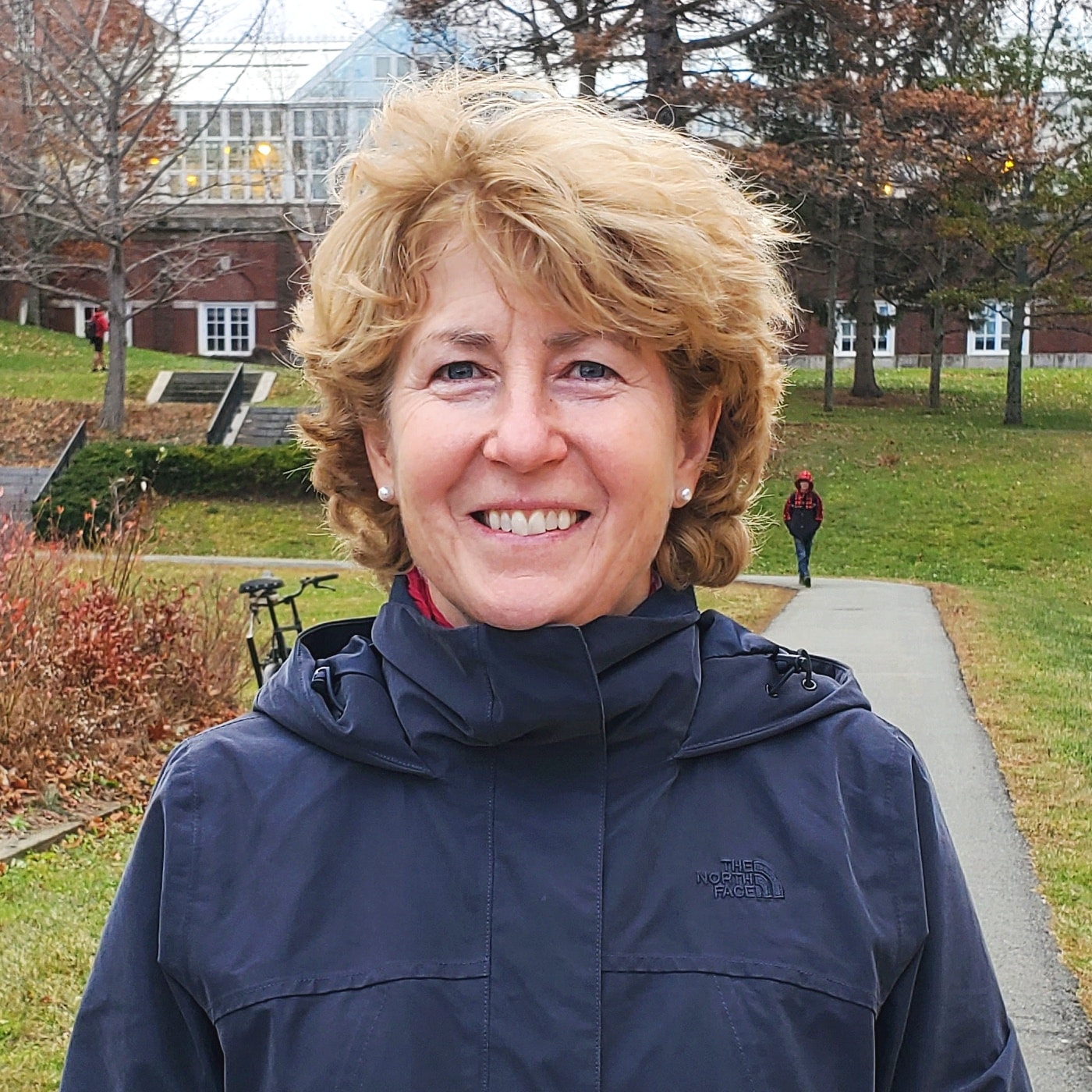Leigh Huestis
Acadia University
Leigh Huestis joined Acadia in 2003 after working in a variety of senior business development and strategic alliance roles within the IT industry in Atlantic Canada. Leigh has an MBA from Saint Mary’s and a Bachelor of Arts (English) and Law degree from Dalhousie University. As Director of the Office of Industry and Community Engagement (ICE), Leigh leads Acadia’s industry liaison and commercialization activities, and is involved in setting the strategic direction for several industry/entrepreneurship-focused institutes, labs and centers on campus. (ICE website here)
What did you do before your role at Acadia?
In terms in education, I have completed a BA in English and law degree from Dalhousie, and an MBA from Saint Mary’s. After I finished school, I joined the IT community in Atlantic Canada, working mostly for a variety of tech-based startups.
I loved working with the IT startup community – working primarily in sales channel development, helping companies set up distribution channels, strategic alliances, and other types of partners. I also helped them with legal contract development and IP protection strategies. I was always involved in corporate IP strategies – whether that involved patenting, trademarks, copyright or other forms of IP protection. Because every company, especially in the startup world, should have a solid understanding of their IP and how to best commercialize it.
I did that for about seven to eight years before starting my own marketing and consulting company with a partner for a couple of years, then I moved to the Valley and joined the team at Acadia in 2003- so I’ve been here 17 years altogether! Hard to believe.
You have been with Springboard since day one! How has it all evolved?
My office was originally called the Office of Tech Transfer and Innovation, but in the past decade we’ve seen a significant shift in our responsibilities with a move to industry liaison activities versus technology transfer. S about 9 or 10 years ago we rebranded our office to better reflect our mandate. It is now called the Office of Industry and Community Engagement (ICE).
The mandate of the Springboard network has also changed dramatically over the years. It used to focus almost exclusively on tech transfer and commercialization, and over time it has changed to focus more on industry engagement and support for start-ups. We recognized that the IP in the institutions was somewhat limited, and it made a lot of sense to partner with other companies who are developing IP to see if we can help them strengthen their assets through research and other forms of support.
There is also a renewed energy around the startup community within the Springboard Network. Our faculty members and grad students can now pitch their ideas—and that’s what’s really changed—before they are completely proven. Not so long ago the technology had to be fairly developed before they were able to attract support/investment.
What opportunities do you see in Atlantic Canada doing this work?
There are significantly more funding and mentorship opportunities. The ecosystem is incredibly supportive. Ten years ago, even if you had a really good idea, it was still so difficult to get funding. Now there are so many supports available, even if it is just the genesis of a good idea with a talented entrepreneur behind it. It’s an extremely exciting time.
How do you think the Springboard network fits into all these supports?
It’s ironic. While it’s great that we have a large number of supports now available, it’s still quite confusing to navigate. We talk a lot about [Springboard’s value] in terms of research and IP, but we’re also there as a pathfinder, helping companies, entrepreneurs, faculty and students find the appropriate systems and supports that best meet their needs.
What does your day to day at Acadia look life?
It ranges dramatically … from talking to companies about their research needs and developing research agreements/funding applications, to helping researchers find industry connections when they have an idea for a very cool research project. One day it may be a physics professor and the next it’s someone in food science/nutrition. It’s a wide spectrum and no day is the same! That’s why I still love it after all these years.
Tell us about the ways Acadia, specifically your office, supports a culture of innovation.
At Acadia we have a very active applied research program and a faculty and student body that is very interested in working with industry and community partners. Our applied research portfolio has grown substantially in the past ten years thanks to them. We also have very flexible IP policies. It shouldn’t be come down to a discussion about IP ownership. Rather, it should be a discussion about how we help our industry partners succeed. That’s where our office comes in – negotiating that path so that everyone’s needs are met, and we are all hopefully successful.
How does the Springboard network support that success?
There is not a week that goes by where I’m not in touch with someone from the Network – whether it’s an institutional member or someone from Central Office. Springboard members often contact me for advice around the legal or IP side of things, and I’m constantly in touch with members to get advice on different funding programs, or to introduce companies to other expertise within the network. It’s been so valuable in that regard and ultimately tremendously helpful for the entire Atlantic Canadian innovation ecosystem.


